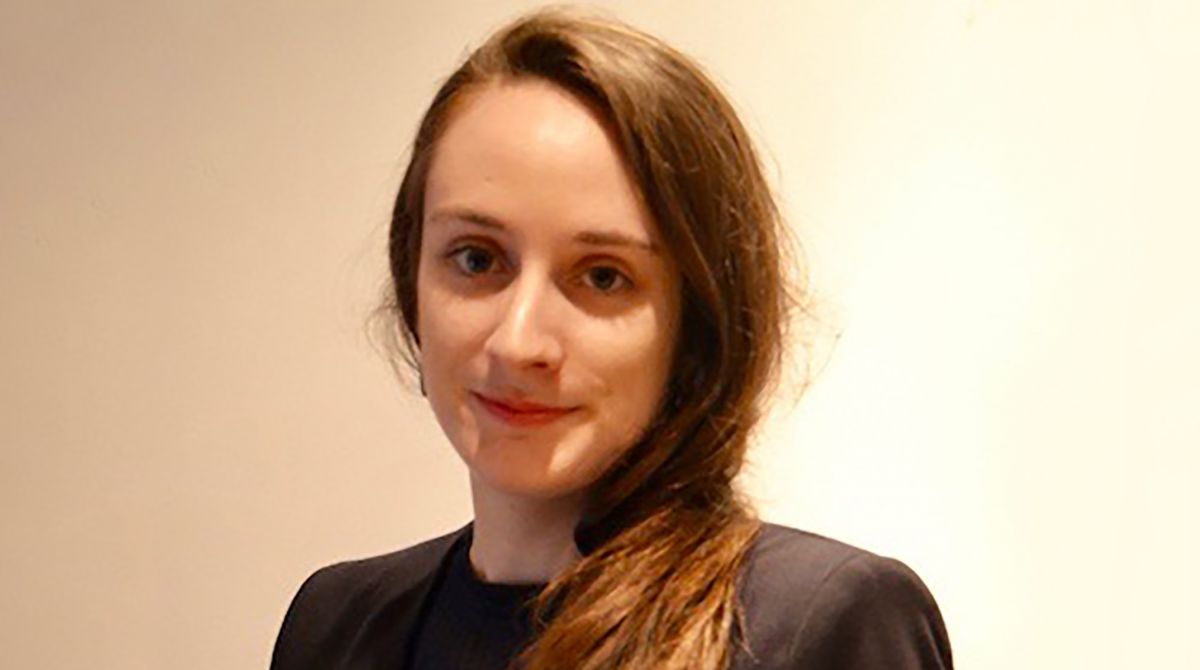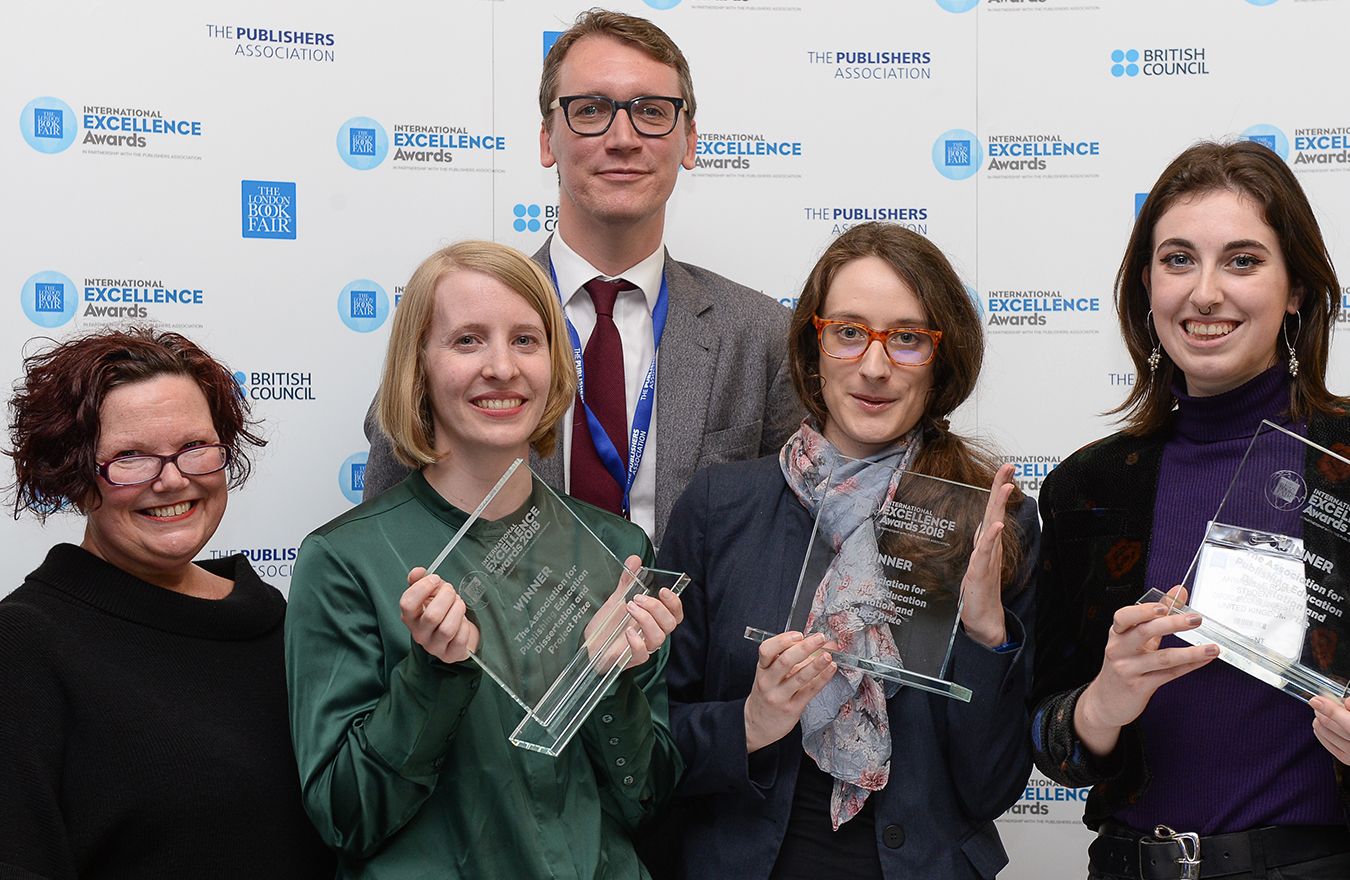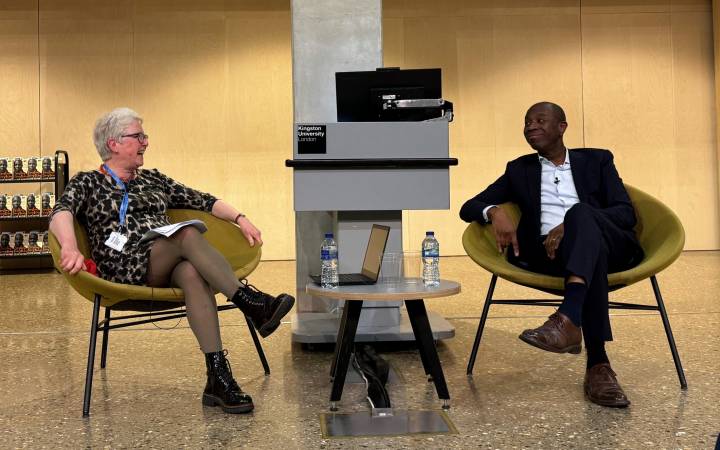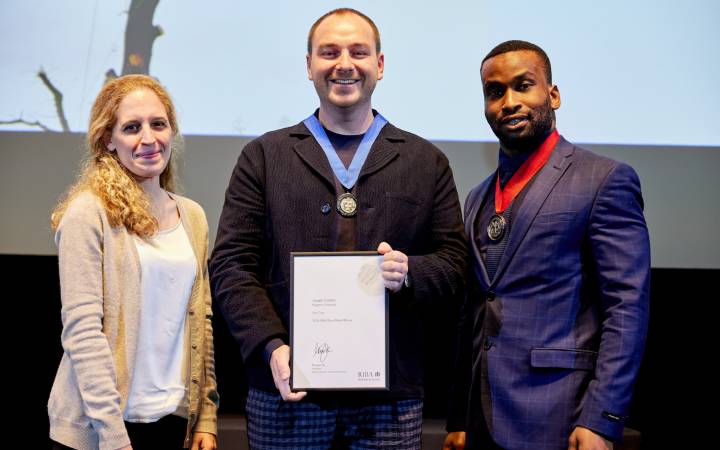Kingston University student scoops Association for Publishing Education prize for work examining demand for books for autistic children
Posted Thursday 12 April 2018

A Kingston University postgraduate student has drawn on her own experiences of growing up with Asperger Syndrome in France for an award-winning dissertation exploring the need for more children's books about autism to be published in her home country.
Seeking to shed light on the isolation young people with autism can feel, MA Publishing student Lucie Ducarre decided to review the current availability and demand for books on autism in French children's literature.
The 27 year old, from Le Chambon sur Lignon in Haute-Loire, southern France, has now been presented with the Association for Publishing Education's annual prize for the best masters dissertation within publishing studies.
Having only been diagnosed with Asperger Syndrome, an autism spectrum disorder, in her early twenties, Lucie was keen to highlight the key role literature can play in helping people understand and relate to the disorder. "I think books can really help demystify autism and even lead to diagnosis at an earlier age," she said.
"I grew up knowing I was different, and having access to books that explained what autism was or that featured autistic characters would have certainly helped me feel less lonely – while books about social skills would have helped my social development. Finally being diagnosed with Asperger's shed light on a number of things for me and kind of eased a guilt I felt knowing that while I was supposedly more intelligent than the average person, there were so many simple things I just couldn't fully understand or do."
As part of her dissertation, the international student carried out interviews with French librarians and conducted surveys with parents of both autistic and non-autistic children in France to assess the demand for a greater number of children's books on autism and books targeted at autistic children. In her study, she argues that the findings present an opportunity for publishers in her home country to look at how to support this apparent gap in the market.
"From my research, it appears there is a high demand for more books on autism in France and it may be that French publishers are not aware of this potential market," she explained. "The surveys also indicated that the general population are becoming more aware and curious about autism – in part due to autistic people gaining more visibility and coverage, politically and in the media, which I thought was really interesting."
Looking forward, the MA Publishing student spoke of her belief that changes in the perception of autism can only start to be made through mutual understanding, cooperation and through education – with the availability of more reading materials a key part of the process. "More often than not, autistic people are perceived as dumb or rude just because society wants to force them to adhere to a world that doesn't make sense for them," she said. "If we were more aware and respectful of their differences, many could turn out to be geniuses in some areas, or at least just as worthy as anyone else."
Congratulating Lucie on her award, Kingston University associate professor Alison Baverstock said the postgraduate student's determination and passion for the subject shone through in her work. "Winning this prize is a terrific achievement – Lucie's dissertation was the best within a very tight field and we are very proud of her indeed," she said. "Her work makes a really significant contribution to the exploration of autism and offers a valuable demonstration of the activist role publishers can play in supporting communities they care about – and for whom they can develop resources."
- Find out more about studying MA Publishing at Kingston University.
 MA Publishing student Lucie Ducarre (second from right) was recognised by the Association for Publishing Education for conducting a study into the demand and availability of books about autism in French children's literature.
MA Publishing student Lucie Ducarre (second from right) was recognised by the Association for Publishing Education for conducting a study into the demand and availability of books about autism in French children's literature.Contact us
General enquiries:
Journalists only:
- Communications team
Tel: +44 (0)20 8417 3034
Email us



